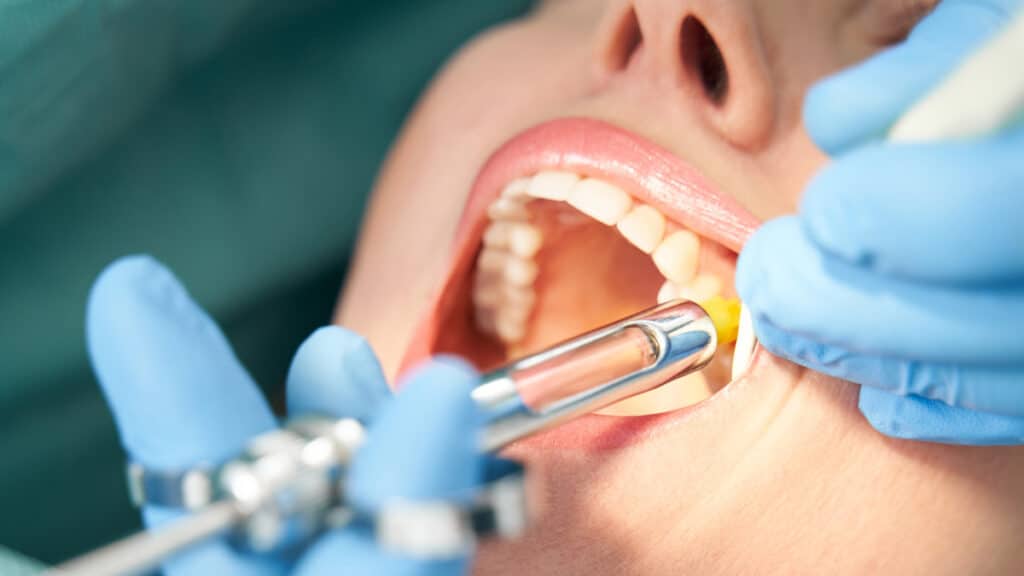What is an Extraction?
Extraction refers to the removal of a tooth from its socket in the jawbone. This procedure is typically performed by a dentist or oral surgeon when a tooth is severely damaged, decayed, infected, or crowded and cannot be restored or saved through other dental treatments.

What Happens During an Extraction?
Examination: Before an extraction, a thorough examination is carried out, often including an X-ray of the tooth. This is to evaluate the shape and position of the tooth and surrounding bone before proceeding with the extraction procedure.
Anesthesia: Before the extraction begins, the patient is usually given an anesthetic to numb the area and reduce discomfort. This can be a local anesthetic, where just the area around the tooth is numbed, or a general anesthetic, in which the patient is made unconscious.
Extraction: Dr. Patel will use special tools to loosen the tooth in its socket and remove it. A surgical extraction may be necessary if the tooth is impacted (i.e., not fully erupted into the mouth). This involves making a small incision into the gum to access and remove the tooth.
Aftercare: Once the tooth is removed, a blood clot typically forms in the socket. The dentist will pack a gauze pad into the socket and have you bite down on it to help stop the bleeding. In some cases, the dentist may place a few stitches to close the gum edges over the extraction site.
Reasons an Extraction May be Necessary
Severe Tooth Decay or Infection: When tooth decay reaches the center of the tooth (the pulp), the infection can easily spread to the surrounding tissue and even cause abscesses. If root canal treatment isn’t possible or hasn’t been successful, tooth extraction may be the best solution.
Orthodontic Treatment: Extractions are sometimes necessary before orthodontic treatments like braces to correct the overcrowding of the teeth.
Impacted Tooth: Teeth, especially wisdom teeth, may not emerge (erupt) into the mouth properly due to lack of space or other reasons. This can cause pain, swelling, and infection unless the tooth is extracted.
Gum Disease: Gum disease can cause loosening of the teeth as it affects the tissues and bone structures supporting the teeth.
Benefits of Having an Extraction
- Pain Relief: Many teeth that need extraction cause significant pain. Once the tooth is removed, the pain typically subsides.
- Prevent Spread of Infection: If a tooth is severely decayed or infected, extraction can prevent the spread of infection to surrounding tissues and other teeth.
- Orthodontic Treatment: For orthodontic procedures, extractions can help make space for better alignment of the remaining teeth.
- Eliminates Problems Caused by Impacted Teeth: Impacted teeth can cause a variety of problems, including pain, damage to other teeth, and infection. Extracting these teeth can alleviate these issues.
Interested in Learning More about Extractions?
Dr. Patel and his team at Colonialtown Dental have extensive experience and knowledge regarding extractions and other solutions for problem teeth. Colonialtown Dental has been serving Orlando and the surrounding areas for over 28 years. Book online or give us a call at 407-422-3811 today!
Services
Cosmetic Dentistry
General Dentistry
- Crowns
- Fillings
- Fluoride
- Gingivitis Treatment
- Periodontal Disease
- Regular Exam & Cleaning
- Root Canals
- Sealants
- Wisdom Teeth
Orthodontics
